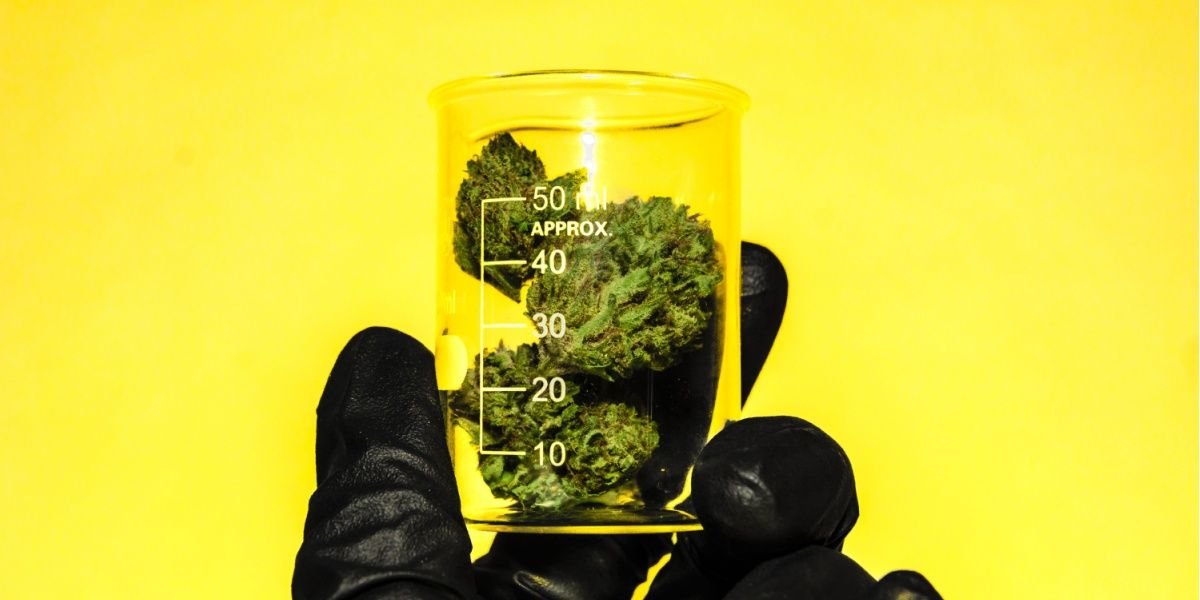Quitting cannabis starts a process that takes time: your body has to gradually metabolize and eliminate THC. That reality can be frustrating, so it’s no surprise that many people look for shortcuts. Herbal cleanses and detox drinks promise a quick fix. However, most of these products fail to hold up under scrutiny.
The truth? Effective detox relies on your body's natural processes, supported by healthy habits, and, when needed, professional care. This article separates fact from fiction around THC detox, explains how long THC stays in your system, and offers realistic, evidence-based strategies to support a clean and sustainable reset.
- THC stays in your body for a while. Because it’s stored in fat, THC can take days or even weeks to fully clear, especially for frequent consumers.
- Most detox products fail to deliver on their promises. They don’t actually speed up THC elimination, and some can even interfere with drug tests by diluting urine or triggering flags for tampering.
- Natural detox needs real support. Hydration, nutrition, rest, and light exercise help your body function at its best. If withdrawal is intense, professional support can make detox safer and more manageable.

THC and metabolism: How long THC stays in your system
THC stays in your system for 1–2 weeks if you use it occasionally and 4–6 weeks if you use it daily. Although the high wears off in a few hours, your body continues to metabolize and eliminate THC much more slowly.
- In people who use cannabis occasionally, the terminal half-life of THC is around 21–25 hours, which means about 97% of it is eliminated within 5 days. [1] The remaining small amount is gradually cleared over the next week.
- In daily or heavy users, THC builds up in fat tissue, which slows the process. The terminal half-life, then, is approximately 4 days, and it can take 3–4 weeks to eliminate most of it, with an additional 1–2 weeks required to remove the remaining amount of THC. [2]
Most drug tests look for THC-COOH, a non-psychoactive metabolite that stays in your system even longer. In chronic consumers, its half-life can reach up to 12 days, which means it may be detectable for several weeks after use stops. [3]
THC withdrawal and symptoms
A 2022 study states that around half of people who regularly use cannabis will experience withdrawal after abruptly stopping THC.
Symptoms usually begin within 24–48 hours, peak between days 2 and 6, and fade over 1–2 weeks, though some may persist for up to 3 weeks in people who use THC daily. [4][5][6] Common THC withdrawal symptoms include: [4][6]
- Irritability
- Restlessness
- Anxiety
- Insomnia
- Vivid dreams
- Low mood
- Reduced appetite
- Nausea
- Stomach pain
- Sweating
- Chills
- Headaches
- Tremors
These effects result from the downregulation of receptors and rebalancing in the body’s endocannabinoid system after sustained THC exposure. [7] Although cannabis withdrawal is rarely dangerous, it can be distressing and very uncomfortable, and it is officially recognized in the DSM-5.
No medications are currently approved specifically for the treatment of this condition; however, supportive care and behavioral interventions are the standard approaches in such cases. [4]
THC detox products: Are they effective?
Many products are aggressively marketed as solutions for a “THC detox” or “marijuana cleanse.” However, no peer-reviewed research supports the effectiveness of these methods. Below is a breakdown of some of the most common myths and ineffective strategies.
Detox drinks and kits
Detox drinks and cleansing kits frequently contain a combination of diuretics, fiber, vitamins, and dyes designed to temporarily dilute urine. While this may mask THC for a few hours, these products do not remove THC from the body.
Exercise and fasting
While exercise and fasting are not a THC detox product per se, it’s important to know that they are ineffective methods. A small clinical study tested whether a 24-hour fast or moderate exercise affected THC levels in chronic cannabis consumers and found no meaningful change in blood or urine levels. [8]
Herbal cleanses and home remedies
Many herbal products claim to “flush toxins” or “cleanse the system,” including:
- Cranberry juice
- Niacin (vitamin B3)
- Liver detox teas or supplements
But there's no scientific evidence that these remedies accelerate THC elimination. Florida Courts explicitly state that “Consuming large doses of vitamins (niacin-B3) to purge marijuana is false.” [9] Additionally, high doses of niacin can even be dangerous, leading to liver toxicity or severe flushing. [10] Be cautious of any natural detox claims that aren’t backed by clinical research.
Adulterating urine or using synthetic urine
Some people try to beat drug tests by adding chemicals to their urine or using synthetic urine. This is fraudulent and illegal in most settings. Moreover, test labs routinely check for adulterants (common additives, like vinegar or bleach, will often trigger a failed test). [11]
The idea that drinking acidic substances (like vinegar) can shift urine pH and mask THC is also addressed in the Florida Courts document: “Drinking vinegar or cranberry juice will not produce a negative drug test. In reality, the body detoxifies the acid and returns urine to physiological pH.” This approach does nothing to detox your body and can land you in serious trouble if discovered. [9]
Risks of quick-fix detox products
Quick-fix detox products, especially unregulated cleanses, pose serious risks due to the potential for dehydration and electrolyte imbalances caused by strong diuretics or laxatives. These products can cause severe side effects, including kidney and liver damage, as well as heart rhythm problems, if misused. [12]
Evidence-based ways to support THC detox
There’s no quick way to rid the body of THC. The only proven detox method is time, supported by healthy lifestyle choices. These strategies won’t speed up THC elimination dramatically, but they support the body’s natural detox process and help manage withdrawal symptoms.
Stop cannabis use
Abstinence is step one. Every new dose resets your progress. Once you stop, your body will slowly eliminate THC through natural metabolic processes over 1–6 weeks, depending on usage level. [1]
Stay hydrated
Hydration supports kidney function and metabolism. Aim for steady fluid intake—avoid extremes.
Eat a balanced, high-fiber diet
Prioritize whole grains, fruits, vegetables, and healthy fats, such as omega-3 fatty acids. While nutrition won’t speed clearance, it aids recovery and supports mood balance during withdrawal.
Exercise in moderation
Light to moderate activity improves circulation, supports mental health, and helps regulate sleep. Extreme workouts aren’t necessary—gentle routines are fine.
Sleep and stress management
THC withdrawal can disturb sleep and increase irritability. Practice good sleep hygiene (cool room, screen-free nights) and manage stress through mindfulness, therapy, or relaxation techniques. Short-term use of sleep aids, such as melatonin, may be helpful.
Seek social or professional support
Support groups, online communities, or talking with a friend or a trusted family member can provide assistance and make a big difference.
Professional THC detox and addiction treatment
Most people manage marijuana detox at home, but professional help is wise when:
- Cannabis use is heavy or longstanding.
- Withdrawal causes severe anxiety, insomnia, or depression.
- Repeated quit attempts have failed.
- Cannabis use is causing unfounded harm to yourself or others.
Outpatient counseling (e.g., cognitive-behavioral therapy) and support groups improve quit success. When co-occurring mental health and addiction or polysubstance abuse exist, medically supervised detox or residential rehab may be safer.
Recovered.org maintains treatment directories and evidence-based guides to assist individuals in finding detox and addiction treatment.

-person-thumbnail.jpg?v=1758880627)


